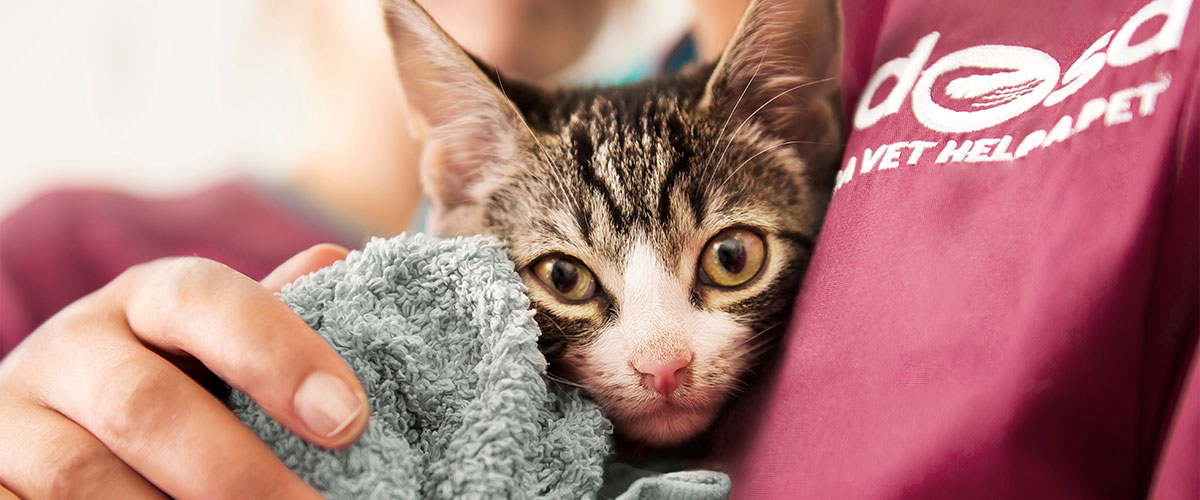Lily poisoning in cats
Overview
- Despite being popular plants in the home and garden, lilies are extremely poisonous to cats.
- If your cat eats any part of a lily plant, they are at risk of kidney failure and should see a vet immediately.
- Sadly, left untreated, lily poisoning is usually fatal.
- Contact your vet immediately if you think your cat has been exposed to lilies.
Why are lilies dangerous for cats?
Lilies are very popular plants due to their beautiful flowers, but unfortunately, they are highly toxic to cats. If your cat eats or licks a lily plant, they are likely to develop kidney damage which, left untreated, can lead to kidney failure and death.
All parts of a lily plant are dangerous, including the leaves, flowers and pollen (even in very small amounts). A common way for lily poisoning to develop is when a cat brushes past a lily, causing pollen to fall onto their fur (which they later lick off and ingest).
There are a number of different types of lilies and all of them can be poisonous including the Asiatic lily (Lilium asiatica), Stargazer or oriental lily (Lilium orientalis), Tiger lily (Lilium lancifolium or Lilium tigrinum) and Easter lily (Lilium longiflorum). Peace lilies (Spathiphyllum species) are slightly less dangerous, but are also toxic.

Lilies are extremely poisonous to cats.
Symptoms of lily poisoning in cats
Contact your vet immediately if you think your cat has eaten or licked any part of a lily plant - never wait for symptoms to develop.
Symptoms usually appear within a few hours, but kidney failure can take a bit longer to develop (often a few days). Common symptoms include:
- Vomiting (being sick)
- Not eating
- Drooling
- Drinking/peeing more
- Twitching
- Seizures
- Sudden/unexplained death.
Treatment for lily poisoning in cats
Treatment for lily poisoning often includes:
- Stomach emptying
- Washing any remaining lily pollen from the skin and coat
- Activated charcoal - a medication to try to stop the lilies causing further damage
- A fluid drip to flush out any toxins in the blood stream and support your cat’s kidneys/ try to prevent kidney failure.
Outlook
Cats that are treated quickly tend to have a good outlook. However, lily poisoning is something that often goes unnoticed, which means treatment gets delayed and lily toxins have time to damage the kidneys. Sadly, if lily poisoning isn’t treated quickly, it’s often fatal.
If your cat has recovered from lily poisoning, it’s possible they might have a small amount of kidney damage that could cause symptoms later in life, but fortunately, this can be well managed in most cases.
Cost
Treatment for a cat with lily poisoning can be very expensive; hospitalisation can cost hundreds of pounds. It’s important to speak openly to your vet about your finances, the cost of treatment, as well as what you think is right for your cat.
Consider taking out Cat Insurance as soon as you get them and before any signs of illness start. This will give you peace of mind that you have some financial support if they ever become unwell.
Published: August 2020
Did you find this page useful?
Tell us more
Please note, our vets and nurses are unable to respond to questions via this form. If you are concerned about your pet’s health, please contact your vet directly.
Thank you for your feedback
Want to hear more about PDSA and get pet care tips from our vet experts?
Sign up to our e-newsletter
Written by vets and vet nurses. This advice is for UK pets only. Illustrations by Samantha Elmhurst.

